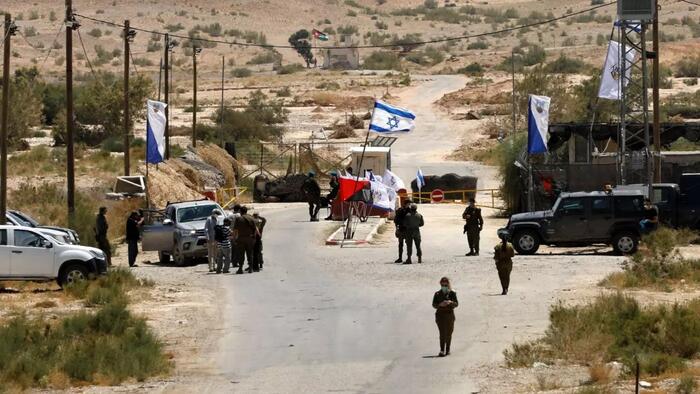On a recent day marked by heightened tension, at least two Israeli soldiers sustained injuries due to an incursion by gunmen from Jordan into Israeli territory. This incident unfolded in Neot HaKikar, located in the southern Dead Sea area, a region that shares a border with Jordan. Deployed forces responded quickly to the situation, leading to armed confrontations that resulted in the deaths of two attackers, while a third reportedly managed to flee. In the aftermath, the Israeli military undertook extensive searches in the vicinity and instructed local residents to stay indoors as they monitored for any additional threats.
The attack took place shortly after Israel announced the killing of a Hamas leader, Yahya Sinwar, in Gaza, underscoring the intense volatility in the region. Israeli military officials had been alerted to a group attempting to breach the border and responded with military force. Reports from the scene indicated the attackers were wearing military attire, raising questions about their origin. However, Jordanian authorities promptly refuted the notion that the gunmen were affiliated with the Jordanian army, asserting that their uniforms were not of military issue from Jordan.
This incident comes amid a complex backdrop, as Jordan grapples with rising anti-Israel sentiment within its borders while maintaining necessary diplomatic ties with Israel. The Kingdom has a significant population of Palestinian descent due to historical displacements, leading to frequent public demonstrations advocating for Palestinian rights, particularly during periods of escalated conflict in Gaza. Political movements within Jordan, such as the Islamic Action Front—an entity linked to the Muslim Brotherhood—expressed support for the attack, framing it as a justified response to Israeli actions in Palestinian territories.
Such incidents of violence resonate deeply within Jordanian society, given the historical context of the Nakba, which saw mass dispossession and displacement of Palestinians. The Islamic Action Front lauded the attackers and urged the Jordanian government to reassess its agreements with Israel, further complicating the already tense political situation. In a striking parallel, earlier incidents involving Jordanian nationals attacking Israeli security forces have highlighted a trend of retaliatory violence driven by perceived injustice against Palestinians, further fueling domestic calls for resistance.
Despite the increasing incidents of violence and anti-Israel sentiment, the Jordanian government has largely opted to preserve its diplomatic relationship with Israel. Economic ties remain intact, reflecting a pragmatic approach to governance amidst a backdrop of public dissent. Nonetheless, Jordanian military involvement in intercepting missile threats from Iran has faced scrutiny from the public, revealing the tension between state actions and popular sentiment regarding conflict in the region.
As the situation continues to evolve, both internally within Jordan and in its relations with Israel, the implications of this latest attack reveal deeper undercurrents of resistance and the challenges of achieving stability. The intertwining of domestic political dynamics with ongoing conflict in Gaza complicates Jordan’s ability to adequately navigate its foreign policy, all while responding to a populace that remains deeply affected by the plight of Palestinians and their ongoing struggle against Israeli occupation. As the situation develops, it highlights the fragile balance that Jordanian leaders must strike to maintain national integrity while addressing the aspirations and grievances of their citizens.

